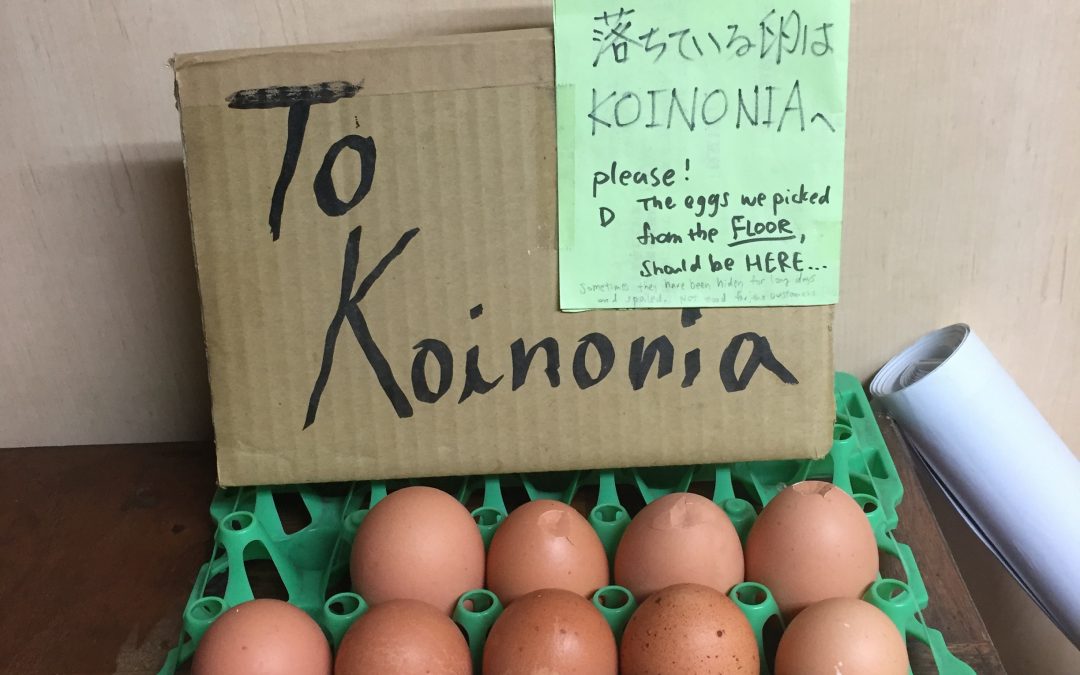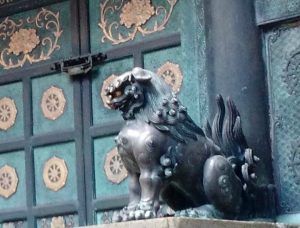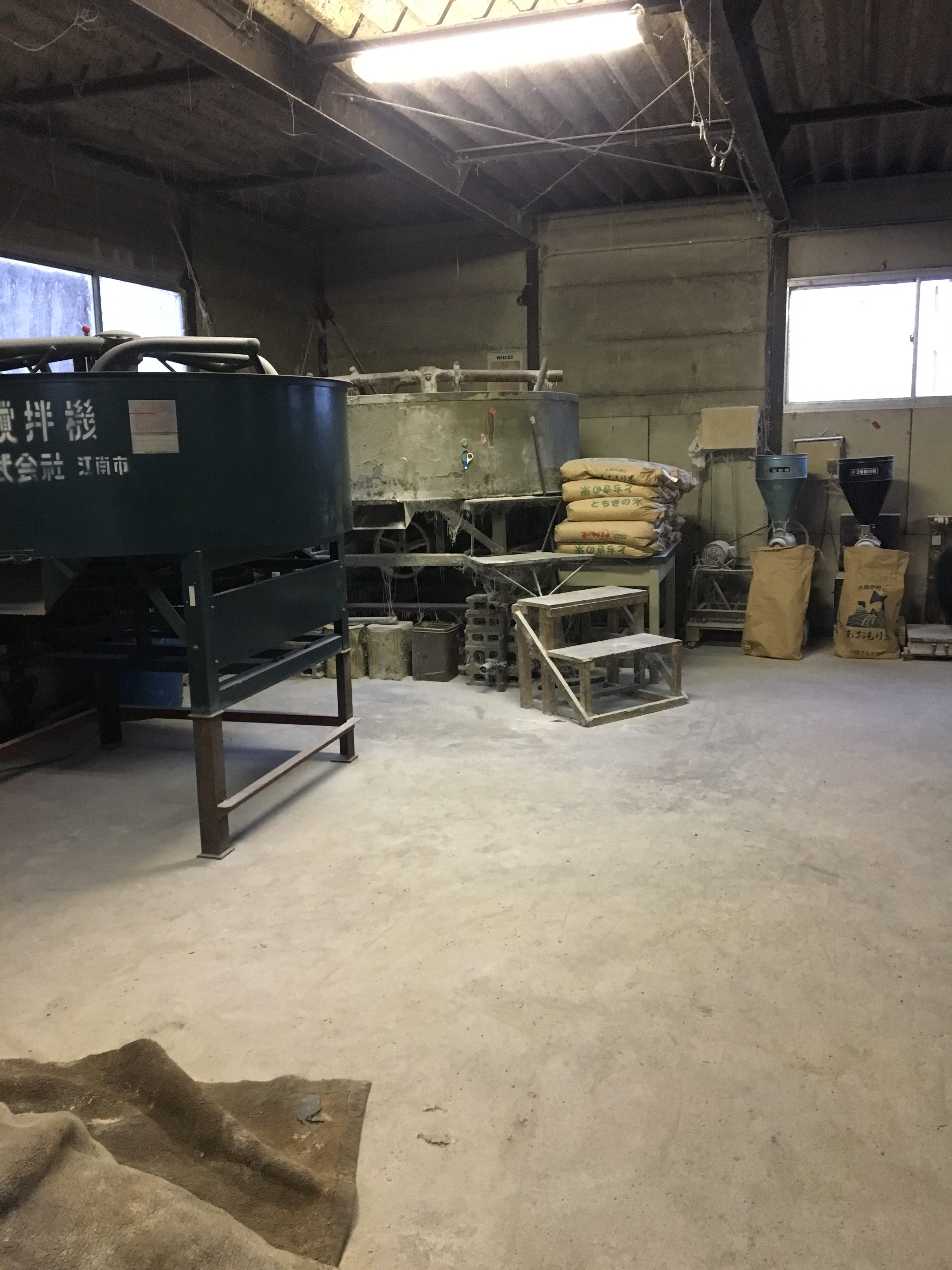
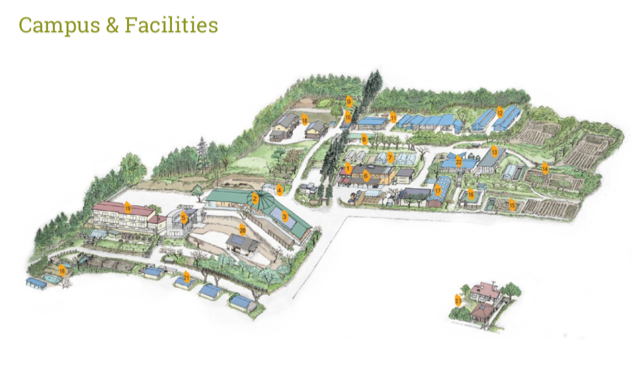
On the first day all of the St. Olaf students were split into multiple smaller teams to learn different pieces of the daily farm chores that happen all at once, twice a day. My small group mixed feed for the chickens and pigs in the mixing room. The piles require constant attention and continual preparation to ensure proper oxygenation and mixing. Our job in the mixing room is very important because we make the feed for a lot of the different teams taking care of different animals depend on us to give them standard, quality feed. In one of our class sessions hosted by Yukiko, a staff member at ARI, we were taught the official ARI mission statement. Part of it features a strong sense of community. My beginning assignment in the mixing room made that part of the ARI experience very apparent. What we did as a singular cog in the machine allowed so many other cogs to turn, creating a system of dependency, but also one of teamwork and community. I felt a twinge of pride when I first realized this, even though I wasn’t as efficient or familiar with the details of the work as I wish I could had been from the very beginning.
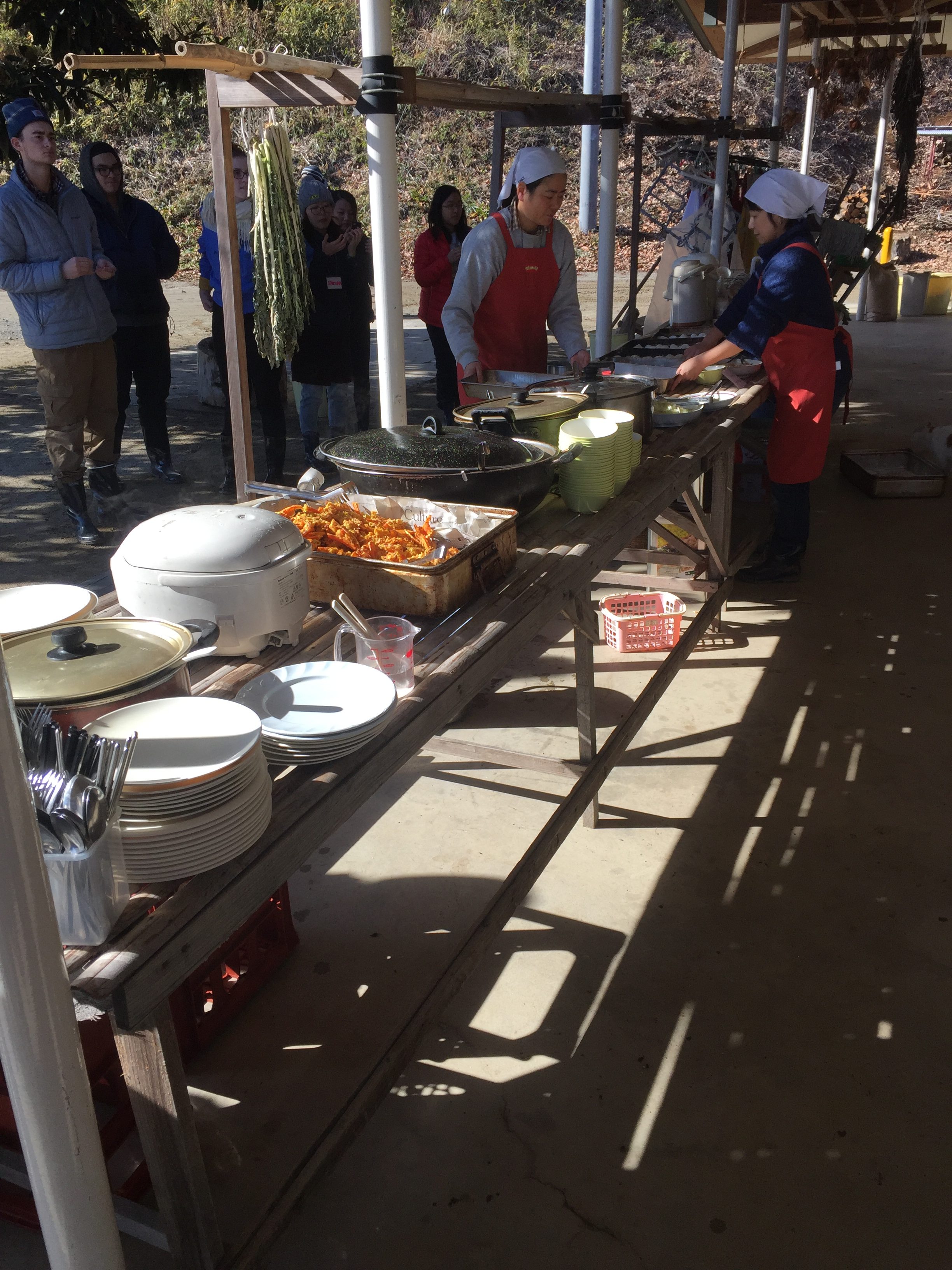
Our clean up from morning Foodlife work is followed by a well appreciated breakfast and then morning gathering in Oikos Chapel. The member acting as the daily chairperson (who also said a prayer at approximately 7:05 AM) is asked to share something, perhaps a meaningful story, with everyone. They are not required to choose a religious topic, but rather something they wish to share or think would be a positive thing for many to hear. We also sing a song and might read a quote from a religious text. The space is filled with calm feelings and positive thoughts for 40 minutes every day as we once again gather as a community.
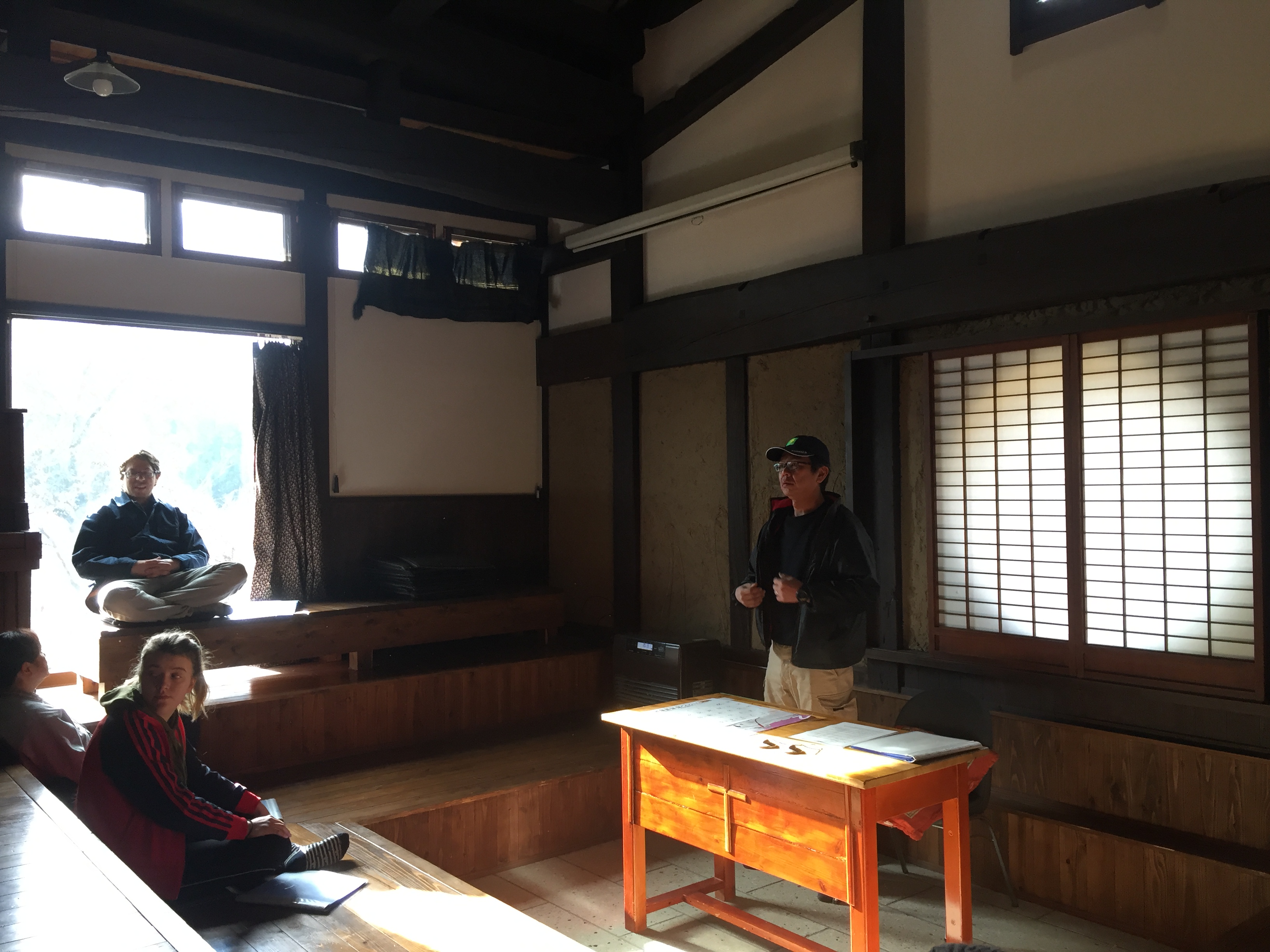
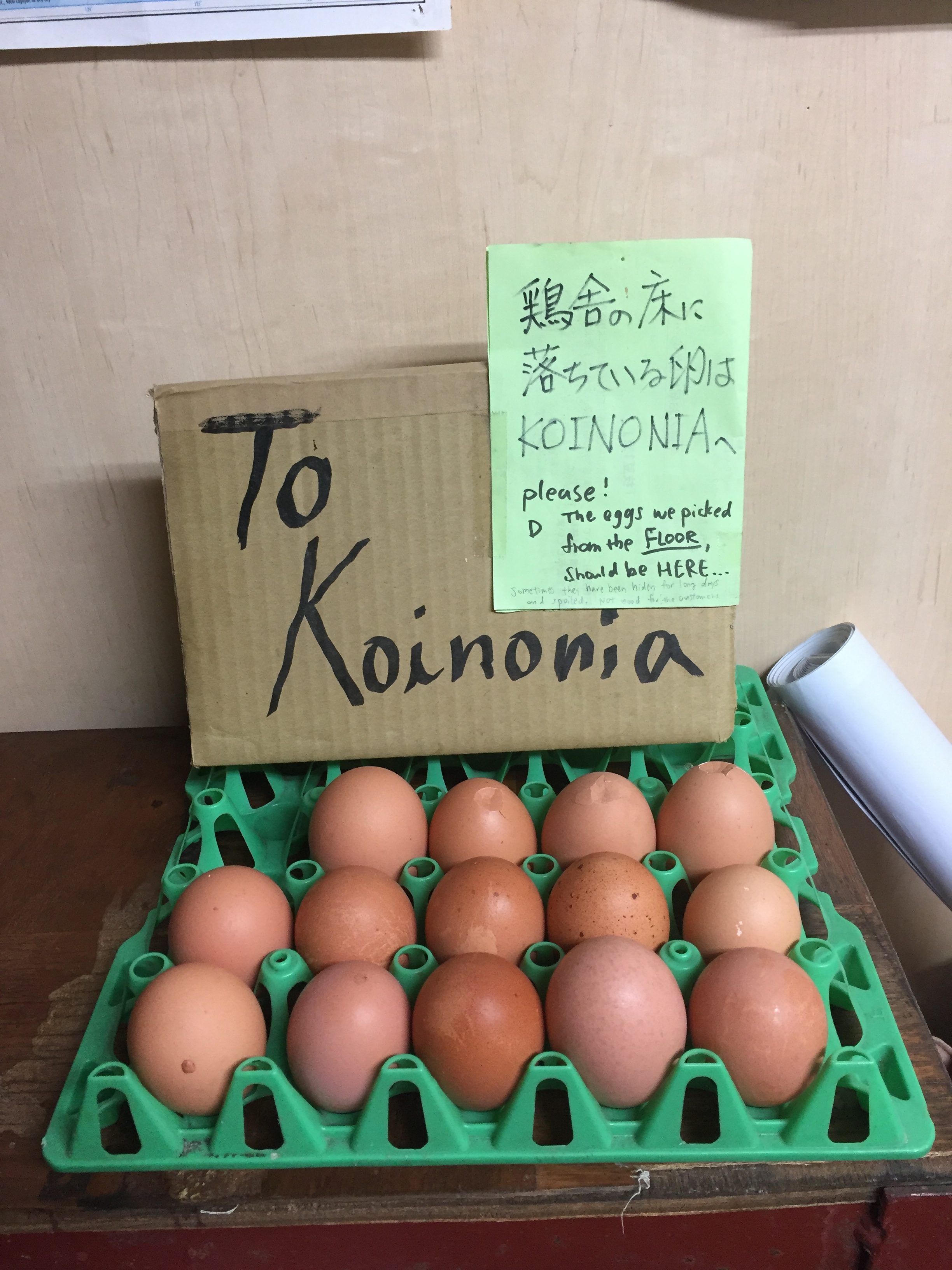
After that we typically have a speaker or perhaps a quick class, then lunch, another period for educational activities, and then go back to more Foodlife chores. The afternoon chores are typically a continuation of the morning work or a close variance. My portion of the work so far has consisted of polishing eggs clean of any dirt or feathers that might be stuck and checking for damaged eggs. Here too I found that often-mentioned sense of community. My peers and I were surprised when staff members or volunteers joined us in the egg room to help polish all of the eggs quickly, but were very glad to get to know them and ask them questions. As shared laughter and ARI’s motto came to my mind: “That we may live together.”
I really value the sense of community that we are building with this special group. It has a lot of goodness and sincerity that I hope to also develop with my classmates, and eventually learn from in order to bring back to campus. I believe it is an essential skill for creating the trend of environmental sustainability with those around me.
